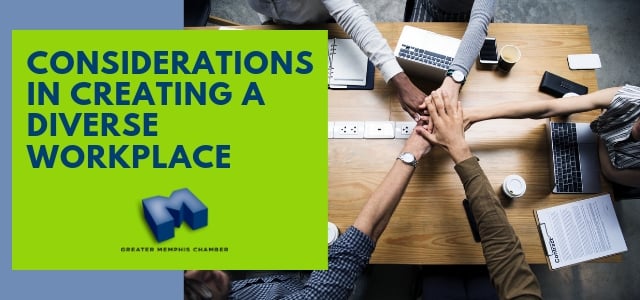
It is almost axiomatic in the 21st Century that workplace diversity is not merely a good thing but that it is nearly a mandatory component of running a successful business. That said, what does “diversity” mean? For some employers, it’s ensuring that a workplace is composed of people from a variety of backgrounds. For others, it simply means having policies against jokes about race, gender or physical disability.
The Center for American Progress projects that by 2050, there will be no racial or ethnic majority in the United States. Immigration and birth rates strongly indicate that America itself will be more multicultural, as immigrants and their children will account for more than four-fifths of the growth in the working population. This will not only mean the complexion of America will change, but also the population will be more multi-lingual and will have different cultural values. At present, women make up half of the working population, and minority groups make up one-third.
Put simply, American consumers are a more diverse group than there has ever been, and other businesses with which your company competes or interacts are already diverse places. It is no longer enough to simply ensure that your company’s employee handbook forbids racism and sexism if you don’t want to be left behind. In order to compete, your company will need to actively seek out a diverse workforce. But don’t stop there. Businesses also need to ensure that diversity isn’t something that only happens at the entry level. You need to guarantee a diverse leadership as well. Having diversity at every level helps ensure a discrimination-free workplace. In turn, having a diverse and discrimination-free workplace has been shown to reduce turnover, thereby reducing turnover-related costs.
Diversity translates to a productive and loyal workforce. A diverse workplace will foster a more comfortable environment, and people who feel comfortable and accepted in their office are more productive. Additionally, employees who see a diverse leadership know that they too can advance and don’t need to look elsewhere to move up the ladder. A diverse workforce means that your company is able to reach customers across linguistic and cultural barriers, keeping up with the changing demographics of the American consumer.
Discrimination on the basis of race, color, religion and national origin is a violation of federal law, so having a diverse, discrimination-free workplace also protects your company from liability. Courts across the country are divided on whether Title VII protects LGBTQ workers from discrimination, but the trend is certainly in that direction, and a number of state and local laws extend to protect these workers.
Ensuring diversity means ensuring an environment in which your employees are less likely to experience discrimination. When you think of diversity, don’t simply think about the risk of a lawsuit. Think about the advantages to the bottom line. The rest will take care of itself.
Founded in 1994, Black McLaren Jones Ryland & Griffee, P.C. is a law firm practicing in a wide range of legal practice areas including family law, insurance defense, contract law, civil litigation, vaccine law, estate and probate, subrogation, criminal law, and others. The firm is comprised of attorneys licensed in Tennessee, Mississippi, Arkansas, Missouri and New York. Our attorneys are admitted to practice in federal courts, including, but not limited to various United States District Courts, U.S. Court of Appeals for the 6th Circuit, the U.S. Court of Federal Claims and the United States Supreme Court.
For more information, visit: http://www.bmjrglaw.com.
Interested in learning more about the Chamber's Small Business Resources?







